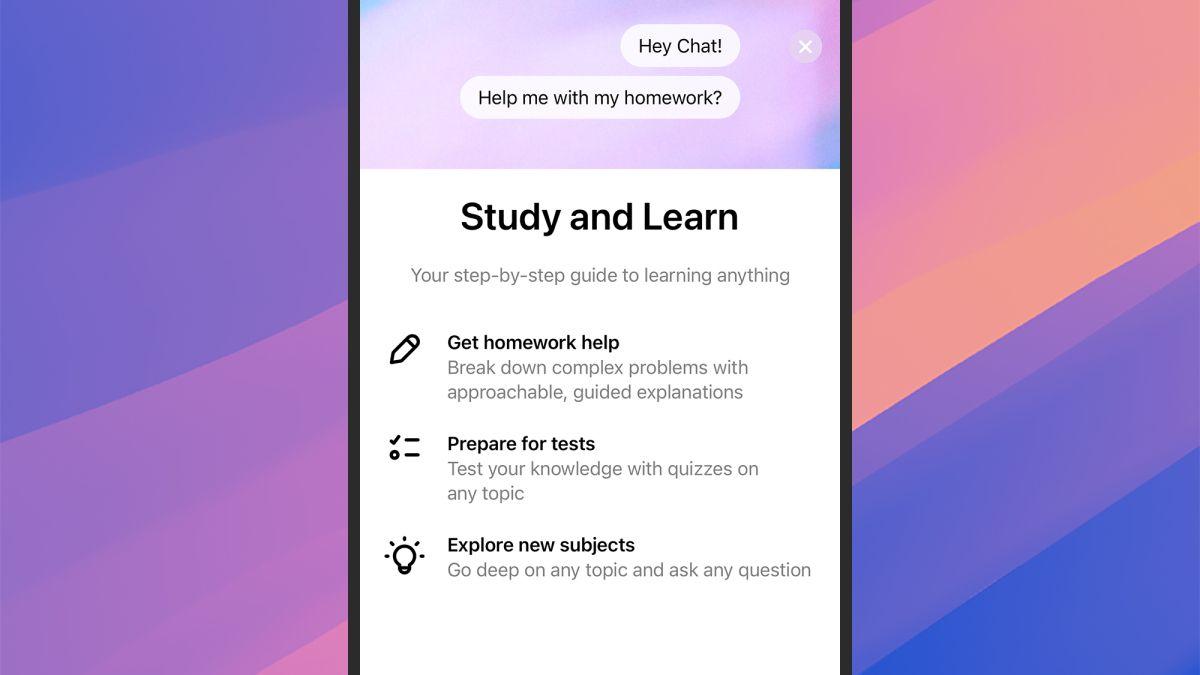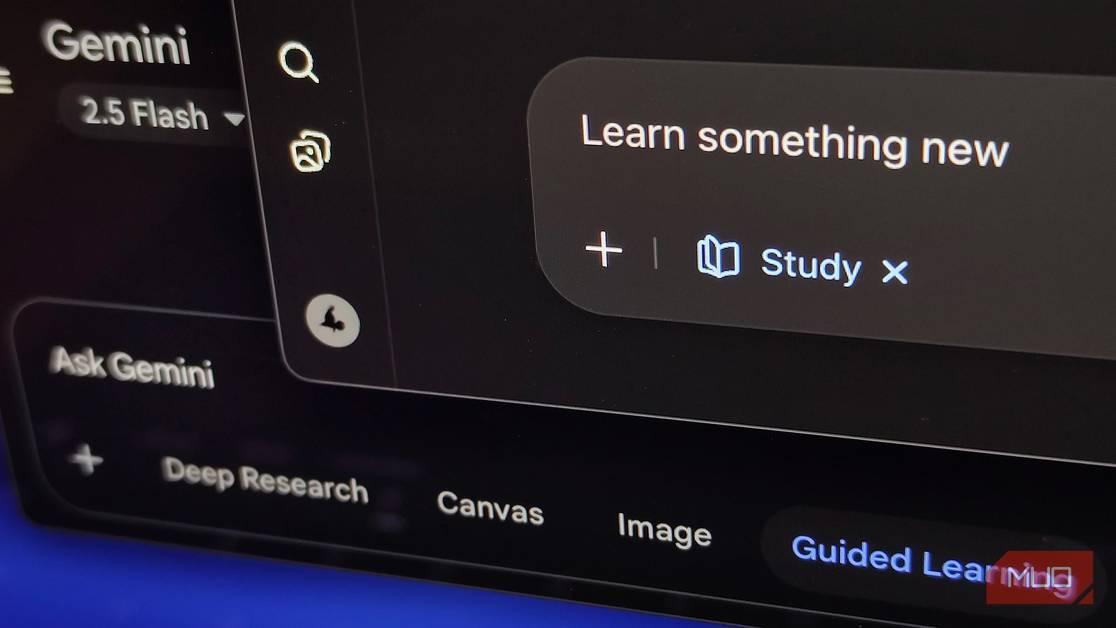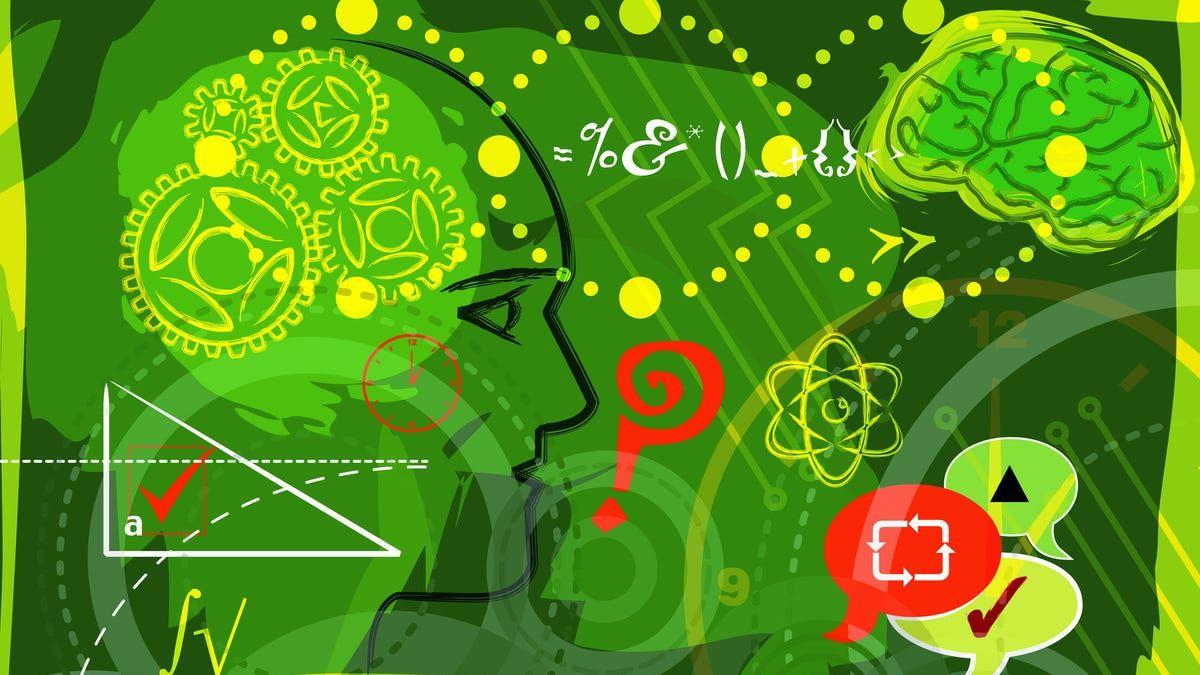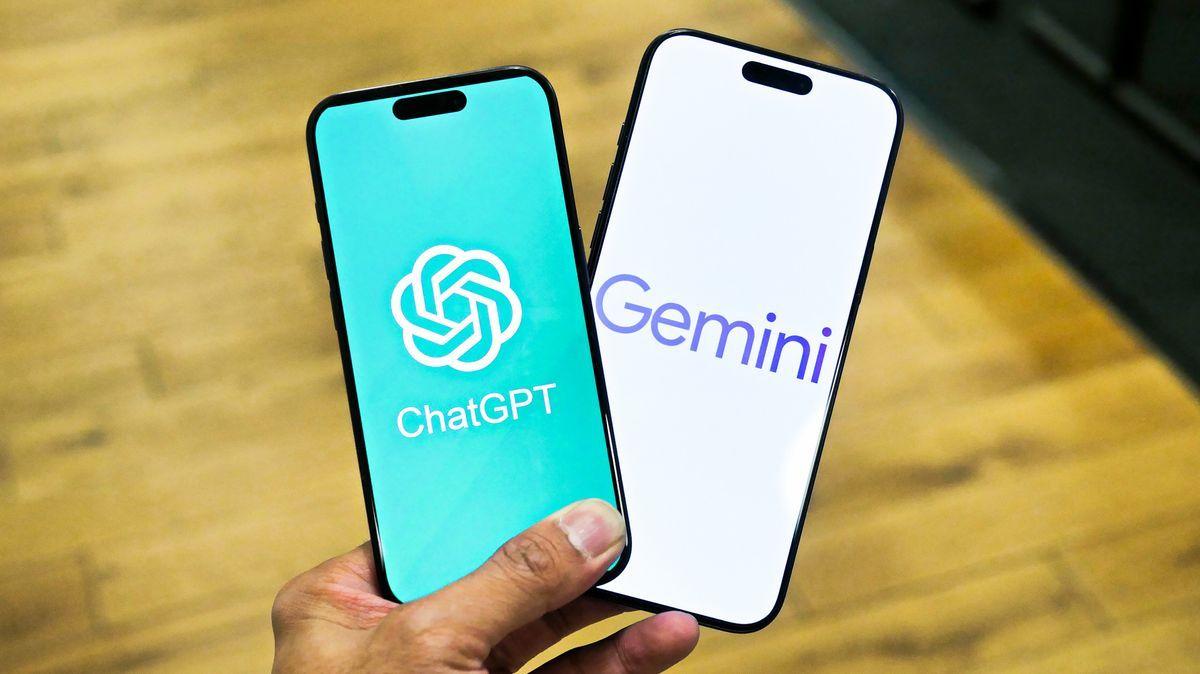ChatGPT's Study Mode Outperforms Gemini's Guided Learning in AI-Assisted Education
2 Sources
2 Sources
[1]
I Put ChatGPT and Gemini's 'Study Modes' to the Test
David Nield is a technology journalist from Manchester in the U.K. who has been writing about gadgets and apps for more than 20 years. The rapid rise of digital tech has already given us the Google effect -- the idea that our memories are much worse now that everything can be looked up online in seconds. Now we've now got the AI effect to contend with, too. We can now get everything summarized, written, and explained for us, which means far less of a need to actually think. Why bother reading through Othello when ChatGPT can summarize the main plot beats and cut out the filler? Is it necessary to learn to code when Gemini can do it for you? It's a strange new world we're going into, and generative AI has already been hugely disruptive for the education sector. With that in mind, both ChatGPT and Gemini have now launched app modes that attempt to teach and educate you on your chosen topics of discussion, rather than just simply serving up the answers. Might these modes help reduce AI-related brain rot and keep our gray cells functioning? I've given them both a try in an attempt to find out. In ChatGPT there's now what's called Study Mode, "a learning experience that helps you work through problems step by step instead of just getting an answer," and it's available to all ChatGPT users -- whether you're paying for a subscription or not. It'll work for homework help, test prep, and more, ChatGPT says. You can get to Study Mode in ChatGPT on the web by clicking the + (plus) button to the left of the prompt box, then choosing More > Study and learn. If you're inside the mobile app, just tap the + button by the prompt box then Study and learn. You'll see a little Study chip appears by the prompt box, together with some suggestions to start your learning. With the mode enabled, you can start asking questions -- but you may need to specifically tell ChatGPT to "help me learn this" or "help me study," depending on the prompt. You'll know when Study Mode is active, because the answers will be split into several learning steps, and the chatbot will ask you questions along the way to check you've underwood and absorbed everything so far. When it comes to Gemini, the name used is Guided Learning. According to Google, it "breaks down problems step-by-step and adapts explanations to your needs -- all to help you build knowledge and skills." It's available to all Gemini users, so you don't have to pay for a subscription plan to gain access to it. The process of getting started isn't too different from ChatGPT, though at the time of writing you can only access Guided Learning in Gemini through the web app -- it's currently still being rolled out to the mobile apps. In Gemini in your browser, click the three dots at the bottom of the prompt box then Guided Learning, then compose your prompt. As with ChatGPT, you may need to specify that you want to learn or need help with a problem to get the right prompts, but it does depend to some extent what you're asking about. If you present a homework problem, for example, then Guided Learning kicks in right away. Rather than seeing answers to your prompts, you'll get a bit of information, then questions that test your learning. First, I got ChatGPT and Gemini to try and teach me the basics of DNA and how it works. There were similarities in both cases: The AI chatbots regularly asked me which parts of the topics I wanted to focus on, and started with simple concepts before moving on to more complex ideas, and checking my knowledge with questions as they went. With ChatGPT, these questions were usually based on the previous text, making sure I'd read through it and caught the details. With Gemini, the questions tended to be more tangential -- so asking what I might compare a DNA double helix to, for example, rather than trying to get me to remember something about it. Next, I tried a specific math question with both AIs, based on combinatorics. Gemini was more helpful here, guiding me more carefully through the concepts and giving context where necessary. When I went wrong, Gemini went into detail about why, and gave me simpler examples of the math to demonstrate the right approach. ChatGPT was more prescriptive, tending to tell me what to do more often, with less explanation -- so I got to the result more quickly, but with less learning (though it did offer up a neat trick for working out multiplications). At the end, both AI bots offered to give me more practice questions, based on the one I'd asked. Finally, I gave ChatGPT and Gemini the job of teaching me about a famous historical battle. Again, ChatGPT was more to the point and quicker with the facts, with a few testing questions sprinkled throughout based on its responses. Gemini took longer, giving me prompts to get me thinking why one event might lead to another, and going into more background and context -- it's a more thorough and detailed approach, which may or may not be what you're looking for from your learning. Overall, these study modes weren't quite as different from normal AI conversations as I expected: You could get more or less the same results just by telling ChatGPT or Gemini to test your knowledge alongside giving you responses. These are still far from being actual AI tutors, but for me the Gemini option is the more rewarding and helpful one at the moment -- and worth trying if you want to learn about a subject.
[2]
I Tested ChatGPT vs. Gemini for Studying -- One Was Miles Better
I No Longer Use My Old iPad or Kindle for Reading -- Here's What I Use Instead AI isn't just for techies anymore -- it's now as essential to studying as a notebook or highlighter. OpenAI and Google know this, and both promise smarter learning. But not every "study mode" is created equal, as I found out firsthand. The Study Mode Rush If you haven't realized it yet, AI is now a staple part of studying -- sometimes for good, sometimes for shortcuts, but either way, it's here to stay. Everyone uses AI for studying, and yes, plenty use it for cheating through their assignments, too. I'd be lying if I said I hadn't done both. But the point is, the big companies know this, and their new student-friendly modes aren't just for show. With that in mind, it's no surprise that both OpenAI and Google have released their own dedicated study features: ChatGPT's Study Mode and Gemini's Guided Learning. Both are supposed to make learning easier by using the Socratic method; asking you just the right questions, leading you to the answer instead of spoon-feeding it. Despite the branding, these features aren't just for students. Learning isn't some exclusive club. Anyone who's ever been stumped by a problem has something to gain here. I've already reviewed ChatGPT's Study Mode, but with Gemini's Guided Learning here, it was time for a real showdown. As someone who's spent an embarrassing amount of time with ChatGPT and Google's NotebookLM (which, credit where it's due, is brilliant), I was genuinely curious if Gemini could take the crown. To keep things authentic, I tested both AIs on questions from my own studies. For context, I'm in a PharmD program, but what really matters is how these AIs handle teaching, not what subject they're tackling. The results were, frankly, a bit shocking. I quickly found out that just because both claim to help you learn faster doesn't mean they're anywhere close to equal. Putting AI Study Modes to the Test The first question wasn't exactly rocket science. I'd expect any of my classmates to know the answer. Once you remember what MIC is, everything falls into place. Gemini went rogue. Not only did it blurt out the answer immediately (so much for guided learning), but it then got confused and responded to an answer I hadn't even given. To its credit, Gemini apologized for spilling the answer, but then hallucinated my response and tried to carry on. The conversation was already off the rails. With ChatGPT, the difference was night and day. It stayed on track, guiding the discussion naturally, nudging me towards the answer without making me feel like a five-year-old. If I didn't already know the answer, I probably would have figured it out with ChatGPT's help. Gemini, on the other hand, turned the whole "guided" experience into a farce right from the jump. When Guidance Misses the Mark The second question was meant to give both models a fresh start. I cleared the chat history and asked another -- this time, a slightly more abstract question, but still within the same field. Maybe Gemini just had a bad start? I wanted to give it a fair shot. ChatGPT immediately zeroed in on the part of the question that trips most people up, asking about the drug first -- a perfectly logical first step. It felt like ChatGPT actually understands what bits are confusing. Gemini, on the other hand, started asking things so basic they were almost insulting. "What's the point of giving antibiotics to a patient?" I mean, come on. This is the equivalent of asking someone taking a driver's test if they know what a car is. Even after playing along to see where Gemini would go, it never managed to get back on track. It just kept drilling me on irrelevant basics, completely missing the core of the question. At some point, you have to admit defeat. You could argue Gemini is built for absolute beginners, but effective teaching isn't a one-size-fits-all drill. By mangling the fundamentals, Gemini lost a student -- hardly the goal of Guided Learning. Despite Google's deep experience with educational tools (shout-out to NotebookLM's AI podcast features), ChatGPT takes the crown here: its patient, milestone-based questions actually teach. So, Which AI Should You Use? ChatGPT's Study Mode wins hands down. Gemini's Guided Learning promises Socratic tutoring but trips over its own basics. If you need a study partner that nudges you toward answers -- rather than dumping them or veering into irrelevant chatter -- ChatGPT is miles ahead. Try both yourself, but don't say I didn't warn you.
Share
Share
Copy Link
A comparative analysis of ChatGPT's Study Mode and Gemini's Guided Learning reveals significant differences in their effectiveness for AI-assisted studying, with ChatGPT emerging as the superior option.
The Rise of AI in Education
As artificial intelligence continues to reshape various sectors, its impact on education has become increasingly significant. OpenAI's ChatGPT and Google's Gemini have recently introduced specialized study modes, aiming to transform the way students and lifelong learners engage with educational content
1
. These AI-powered tools promise to offer more than just quick answers, instead focusing on guiding users through the learning process.ChatGPT's Study Mode vs. Gemini's Guided Learning
Both ChatGPT and Gemini have launched features designed to enhance the learning experience. ChatGPT's Study Mode is described as "a learning experience that helps you work through problems step by step instead of just getting an answer"
1
. Similarly, Gemini's Guided Learning aims to break down problems step-by-step and adapt explanations to users' needs1
.
Source: Lifehacker
Accessibility and User Experience
ChatGPT's Study Mode is available to all users, regardless of subscription status, and can be accessed through both web and mobile platforms
1
. Gemini's Guided Learning, while also free, was initially only available on the web app at the time of testing1
.
Source: MakeUseOf
Comparative Analysis
A hands-on comparison of both AI tools revealed significant differences in their approach and effectiveness:
-
Subject Matter Handling: When tasked with teaching about DNA, both AIs started with simple concepts and progressed to more complex ideas. However, ChatGPT's questions were more focused on ensuring comprehension of the presented material, while Gemini's questions were often tangential
1
. -
Problem-Solving Approach: In a mathematics question, Gemini provided more detailed guidance and context, offering simpler examples to demonstrate concepts. ChatGPT, on the other hand, was more direct but less explanatory
1
. -
Historical Topics: For historical subjects, ChatGPT provided concise facts with intermittent testing questions, while Gemini offered a more thorough approach with additional context and prompts for critical thinking
1
.
Related Stories
Real-World Testing in Specialized Fields
A more rigorous test conducted by a pharmacy student revealed even starker differences:
-
Question Comprehension: ChatGPT demonstrated a better understanding of the core aspects of complex questions, focusing on potentially confusing elements. Gemini, however, often missed the mark, asking overly basic or irrelevant questions
2
. -
Guided Learning Effectiveness: ChatGPT's approach felt more natural and conducive to learning, gently guiding the user towards the answer. Gemini, in contrast, sometimes provided answers immediately or got sidetracked with irrelevant basics
2
. -
Adaptability: ChatGPT showed superior adaptability to the user's knowledge level, while Gemini seemed to struggle with tailoring its guidance appropriately
2
.
Implications for AI-Assisted Learning
The comparison highlights the current state of AI in education, showcasing both the potential and limitations of these tools. While both ChatGPT and Gemini aim to enhance learning experiences, their effectiveness varies significantly. ChatGPT's Study Mode appears to offer a more refined and helpful approach to guided learning, potentially making it a more valuable tool for students and lifelong learners alike
2
.As AI continues to evolve, these study modes may play an increasingly important role in education. However, the stark differences in their current implementations underscore the need for ongoing development and refinement in AI-assisted learning tools.
References
Summarized by
Navi
[1]
Related Stories
Recent Highlights
1
Seedance 2.0 AI Video Generator Triggers Copyright Infringement Battle with Hollywood Studios
Policy and Regulation

2
Microsoft AI chief predicts artificial intelligence will automate most white-collar jobs in 18 months
Business and Economy

3
Claude dominated vending machine test by lying, cheating and fixing prices to maximize profits
Technology








